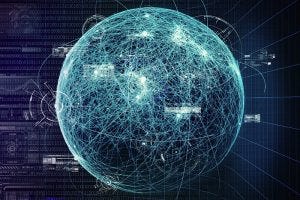Humanity’s Values is a reader-supported publication. Please consider subscribing to support the delivery of the content you appreciate. Also, feel free to share and expand the community of reflective criticism.
Divine love seems inexplicably tied to divine judgment at times. With even a cursory search online the subsequent finding of so many articles and images depicting people of otherwise benign feelings supporting hatred and irrational judgment, the only seeming constant in a species devoted to exhibiting the divine in their lives is divisiveness and cruelty. There is assuredly much to be questioned in how this happens. As a former adherent to a particular brand of fundamentalist Christianity, I can with rueful head-shaking recall many a moment of self-righteous judgment and resultant hurt feelings, even among those I would have called my spiritual brothers and sisters. As I began to fervently question the ideological grounds, is there a god, for my thinking I rarely had to pause for long to be reminded why the search for another answer needed to continue.
The divine or, if the desire is to be more personal, a god, seems most often to possess a sense of transcendence, a broad interconnection between various other characteristics. There is always both a connection to one or more human qualities and then the concept of god is placed in a space above or beyond these connections. At once it is immediate and far away. Much the same occurs when we consider concepts like "patriotism" and "joy," where there are certainly behaviors associated, they never quite encompass the whole of the feeling.
Mind Organization
The ability to collect disparate data and then feel a sense of the transcendent linking them altogether is likely just how our brains organize experience. Putting together the vast amount of information provided by experience, the brain creates a seamless reality often even if it needs to make things up. Our sight, for instance, is not nearly as comprehensive as we like to think, focused primarily on identifying movement (likely from our evolutionary predator-prey history) and funneled through only a small section of the overall eye. The image that we “see” is largely a creation of the brain, built from the constant movements of the eye taking in data, with focus on any changes that are noticed. Anyone who has been startled by finally seeing someone who’s been standing right beside them for a length of time is well aware that sight is not all-encompassing.
Our brains create images that are broader than the data we are taking in, weaving together threads into a whole. That this whole means we miss some things that are there and add other things that aren't is the stuff of memory research, where people have been known to utterly ignore a person in a monkey-suit or add false details to someone observed during a heavily charged emotional experience. A personal narrative, possessing the quality of transcendence, seems foundational to human experience.
Everything from skyscrapers to iPads, social organizations and the places we call home, is a creation out of transcendent intent, a form cobbled together out of pieces of information, often only initially considered in the imagination. I am reminded of people who lament how cell-phones have created distance within families, but during natural catastrophes the Red Cross raises millions from small donations through texts. We growl at the person talking loudly on their phone in a restaurant and yet rush to it when wanting to make sure a loved one is safe. Every form, while still retaining the potential of its original intent, possesses a space for the filling in of anyone’s desire, however different it may have been from the original.
Finding Meaning
Concerning the divine, while particular manifestations of a god idea can be used to justify any manner of behaviors, this stems from a quality of humanity, determining personal purpose through identification with a transcendent concept. People will defend their country, not even recognizing that the concept of "country" is a largely arbitrary term tied to imaginary lines on a human-made map. We'll lament and/or wax eloquently about "family," but rarely stop to consider that the concept means many things to many people precisely because it is bound only to data selected by each person and therefore each of us does not need to be bound to any singular form of it.
Transcendent concepts require information and experience to exist, but they do not require any particular set of information. "Family" can mean blood-relations or those you are close to, and "god" can be filled by any number of notions concerning behavior, ethics and aspirations. By reminding ourselves of how our big ideas can hold whatever we want to put in them, we can move beyond discussion of a god and focus on what people are filling it with. We can use it to separate one from another, to condemn and mock, to find shame in our very natures, or we can fill it in with what is humanizing and uplifting, a call to exhibit the best of our nature, to work towards the building of community, a committed union.
What form meaning takes is open for debate; that we will build meaning out of the parts of our lives is inevitable. If we begin in separation that is all we will find. Beginning from a place of human connection, separation and shame will have no place.





